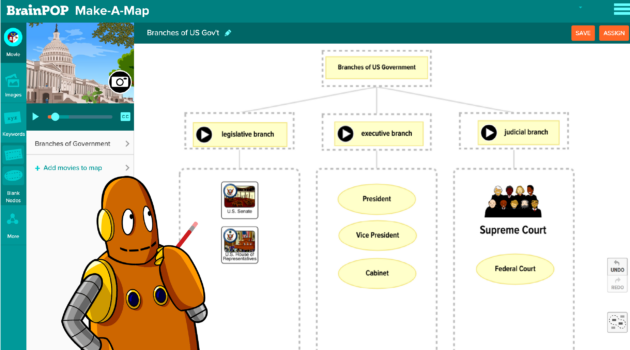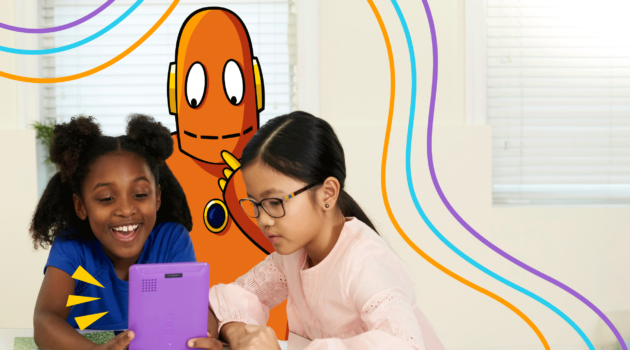Teacher Stories
Parent-Teacher Conferences as a Vehicle for Student Success

Ilana Garon is a writer, editor, and educator who has taught English (and sometimes math, in emergencies) in New York City, Nashville, and Kansas City. She is the author of “Why Do Only White People Get Abducted by Aliens?”: Teaching Lessons from the Bronx (Skyhorse, 2013). Ilana is a military spouse currently stationed in Washington, DC with her family.
In New York City, high school students are invited to participate in parent-teacher conferences. During the years I taught in the city, I could usually tell the moment an adult-child duo entered my classroom how their conferences were going so far: if well, the kid would walk in first, proudly holding a folder with a report card inside, beaming in every direction. If poorly—meaning, they had received an unexpectedly bad report card or a withering evaluation from a teacher—they would come skulking in behind their grown-up, eyes to the ground, resigned to whatever punishment would be doled out at the end of the evening. (By my conservative estimate, the punishment involved losing cell phone privileges at least 70% of the time.)
“Tonight, I’m going to take my mom to you last,” announced one of my 10th graders the morning of one such parent-teacher conference night.
“How come?” I asked.
“Because I know my science teacher’s going to give me a bad report,” he explained pragmatically. “So, I’ll send my mom to him first, and to you last, so you can tell her you like me.” He paused and smiled cheekily. “Then she’ll have mixed emotions and be too confused to punish me.”
My conversation with this young man illuminated what I suspect is a common problem with parent-teacher conferences: Parents can feel like they are passive recipients of information, rather than equal partners with teachers in their child’s learning and growth.
What do parents and caregivers need to feel empowered to support student success? How can we create more sturdy legs in the parent-teacher-student triangle?
How can we create more sturdy legs in the parent-teacher-student triangle?
“Conferences are a safe and non-judgmental space for caregivers to share,” says Meghann McNaught, a fifteen-year veteran kindergarten teacher in the San Francisco Bay Area. “Open communication and transparency between caregivers and teachers is essential.”
McNaught stresses that information must flow in both directions: Educators desperately need information and insights about students’ lives beyond school. When caregivers share what’s going on at home, teachers can tailor their approach to address students’ needs. “Establishing trust and open communication will most likely result in student success,” she says.
When I was teaching, I’d rely on a particular strategy, which proved especially effective if a student wasn’t performing well in my class: Rather than sitting at my desk, I’d arrange three desks in triangle formation. Once everyone was seated, I’d ask the student, “So, how do you think things are going?”
The answer often surprised me. Most students were completely clear-eyed and honest about how they were doing in my class, and why. Inviting them to talk about it with their parent in the room got everyone on the same page. If a student wasn’t doing their work because they couldn’t concentrate at home, or they were struggling with academic concepts, or they simply were too tired after sports practice, we were all there to hear it—and we could devise a solution together.
A Cornerstone of Success
Since the pandemic, communication between parents and teachers is all the more important. Some conversations will be different than before. “A lot of our conference time will be spent discussing what school has looked like for students during the pandemic, understanding that many families have dealt with hardships during COVID, such as losing loved ones, unemployment, and financial stresses,” McNaught explains.
With young students, there is an added dimension of uncertainty. “For many kindergarten and early elementary students, this is their first experience being in a classroom setting. They are learning the routines of a school day, strengthening independence, and developing social skills like sharing and taking turns, while alleviating any anxieties that may have carried over from the previous year.”
Educators hope that conferences give parents a clear sense of how their children are doing, both academically and socially. We also want parents to see us as real, present human beings to whom they can reach out with questions, comments, and concerns—and that goes both ways.
“This year, I want caregivers to leave their conference with the confidence that school is a safe place for their child to grow, learn, and find normalcy in their lives once again,” McNaught says. “I want caregivers to understand that we are a team. We are working together with one goal in common: to make this a successful year for their child.”
Educators hope that conferences give parents a clear sense of how their children are doing, both academically and socially. We also want parents to see us as real, present human beings to whom they can reach out with questions, comments, and concerns—and that goes both ways.
Putting Assumptions Aside
McNaught says she particularly appreciates when parents come to meetings and ask, “How can I support my child’s success at home?”
Their willingness to ask builds trust. McNaught describes how some parents assume that homework or drill-and-practice assignments are necessary for academic growth, when in fact a teacher may have different, more effective strategies in mind.
“Remember, teachers are experts in the field of education—but what they want most is what is best for the child,” McNaught says.
In my experience as a teacher, I found that many parents wanted to actively support their children’s education, but some lacked confidence in their own knowledge, particularly if English wasn’t their first language or they didn’t graduate from high school. I would reassure them that specialized subject-matter expertise wasn’t nearly as essential as reinforcing good educational habits and self-care practices at home, which creates a strong foundation for everything kids do at school.
As McNaught says, teachers are education experts, but grown-ups are experts on their kids.
The Caregiver Who Shows Up
“Remember to bring me your grown-ups—I need to know what shenanigans you guys are up to outside of class,” I would tell my students, to some giggles, on the day of conferences.
Once, an academically outstanding 11th grader in my AP English class showed up with a gentleman I assumed was his father. We discussed his progress in my class—he was working hard and doing very well. As they got up to leave, the gentleman said sardonically, “Now, we’ve got to talk to his math teacher to figure out a plan to get his grade up in trigonometry.” The 85 was the lowest grade on his report card. My student shook his head in a gesture of mock exasperation, but I noticed he was smiling.
“I enjoyed meeting your dad,” I told him the next day in class.
“He’s not actually my dad; he’s my stepdad,” my student told me. Then he smiled again. “But he’s ‘real dad,’ if you know what I mean.”
The conversation stayed with me because it simply summed up what a kid needs from a caregiver: to be aware of schoolwork, to show up to talk to teachers, to ask questions, and most concretely, to partner with teachers to chart a path toward improvement.
Conferences can be a catalyst for academic success, confidence, and courage, empowering students with the knowledge that the grown-ups in their sphere are always working together, as a team, to lift them up.






